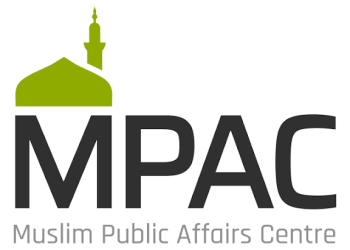By Nkechi Eze
The Chairman of the Independent Corrupt Practices and Other Related Offences Commission (ICPC) Dr. Musa Adamu Aliyu has has urged agency heads to thoroughly scrutinize financial documents before signing off on them. This call to action emphasizes the importance of accountability, as leaders will be responsible for all funds allocated during their tenure.
He gave the advice during an executive session of the Chairman of ICPC with Chief Executive Officers (CEOs) of public agencies, organized by the Anti–Corruption Academy of Nigeria (ACAN), the training and research arm of ICPC, on Wednesday in Abuja.
The training which was geared towards enhancing behavioral change of heads of public agencies towards developing strategies to prevent corrupt practices and promoting transparency, honesty and accountability in and outside their working environment, was supported by MacArthur Foundation, and had in attendance heads of agencies and Legal practitioners and some National Assembly members.
Declaring the event open, the ICPC Chairman noted that the havoc corruption has done to the public service and the nation at large cannot be quantified. According to him, the ICPC recognizes the importance of leadership in ensuring that corruption is diminished in public sector.
“This executive session is designed to generate discussions that will focus on how best we can collaboratively prevent corruption in our MDAs, with the understanding and agreement that prevention is better than cure,“ he said.
“When I was attorney general, I could remember that seven million naira was paid for a project which would be carried out with N100,000.
“I only discovered this when I looked closely. The point I am trying to make is that if you are not careful, those working under you will try to push things that after you leave office, you will be called to account for what you do not know, and nobody will believe that you have never seen or that you do not know anything about it because the bulk stops at your table” he said.
“The ICPC will not shy away from its enforcement mandate that allows it to prosecute CEOs who are found guilty of engaging in corrupt practices.
“The objectives of this session include helping the chief executive officers identify corruption risk in their agencies so as to develop appropriate prevention measures to avoid common leadership pitfalls.
According to Dr. Musa, “This session has been put together to address challenges of why good people fall into corruption when appointed as chief executive officers, in order to avoid both internal and external pitfalls as chief executives.”
“It is imperative for you to know the ‘dos’ and ‘don’ts’, so you do not become victims or get co-opted into aiding and abetting corruption within your agencies,” Mr Aliyu said.
He emphasized the importance of cooperation between CEOs and the commission to effectively combat corruption.
Former chairman of the Independent National Electoral Commission (INEC), Professor Attahiru Jega, in his keynote address recounted his experience of how members of the National Assembly pressure public officials to manipulate the national budgets for their own gains.
He described corruption in the public sector as a “significant impediment” to Nigeria’s development and critiqued the pressures top officials face, particularly from the legislative branch.
“There are people—there may be legislators here—but I want to say it quite categorically and i have said it before—they put people under very difficult positions to do their job, even with the right mindset,” he said.
He recalled how some legislators attempted to influence budget allocations and secure contracts, undermining public officials’ efforts to maintain integrity.
Reflecting on his time at INEC, he described it as a “trial of endurance,” noting the constant pressures from lawmakers to manipulate the agency’s budget and contracts.
“Resisting these pressures required a thick skin,” he said. “It’s important to avoid vulnerabilities that could be exploited for compliance.”
He also criticised the widespread corruption culture across government branches and called for institutional reforms.
The National Assembly has been at the centre of various corruption scandals involving budget manipulations over the years.
The handling of constituency projects is a rampant and recurrent example of this.
The Chief Executive Officer (CEO) of the Nigeria Financial Intelligence Unit (NFIU), Hafsat Abubakar Bakari, in her remarks, expressed concerns about the growing complexity of money laundering cases, particularly those tied to drug trafficking, fraud, and corruption. She highlighted the NFIU’s proactive approach, stating that the unit has ramped up its efforts in initiating and prosecuting money laundering cases.















